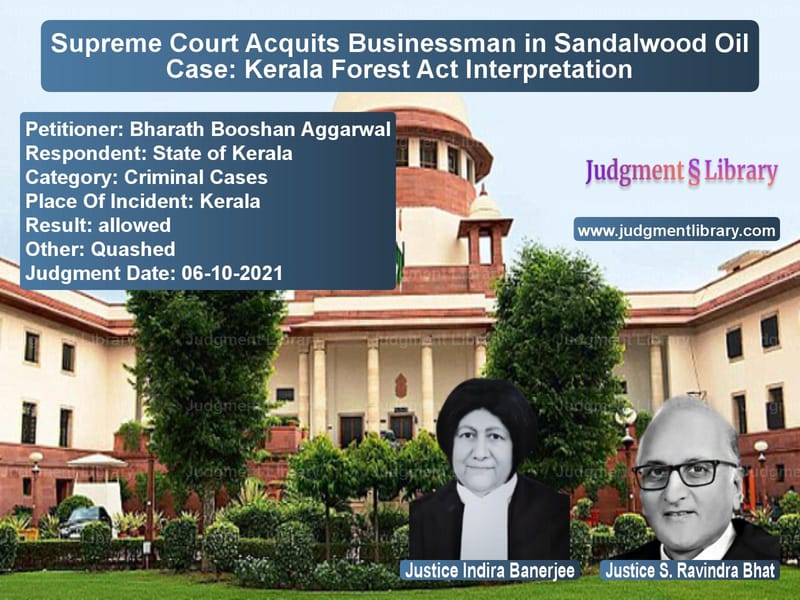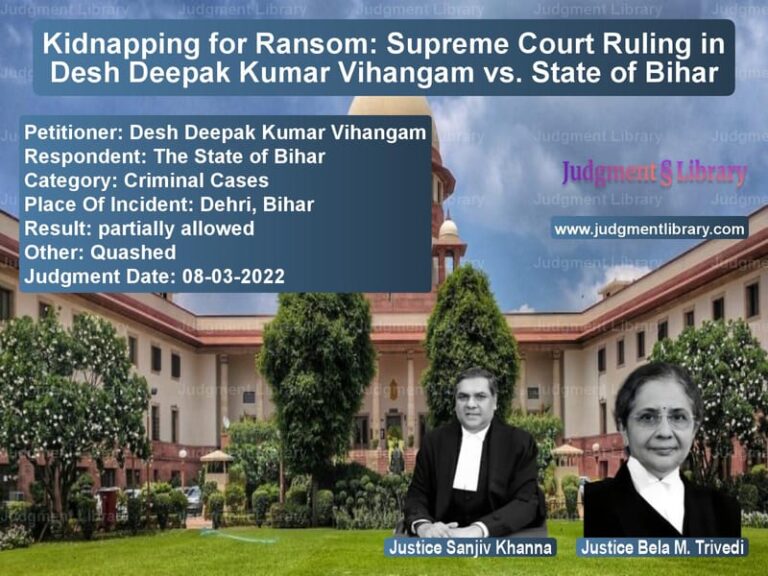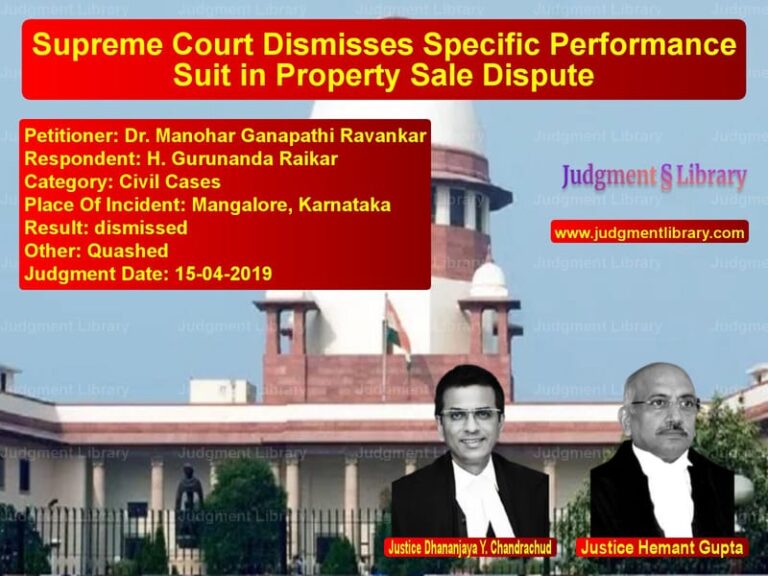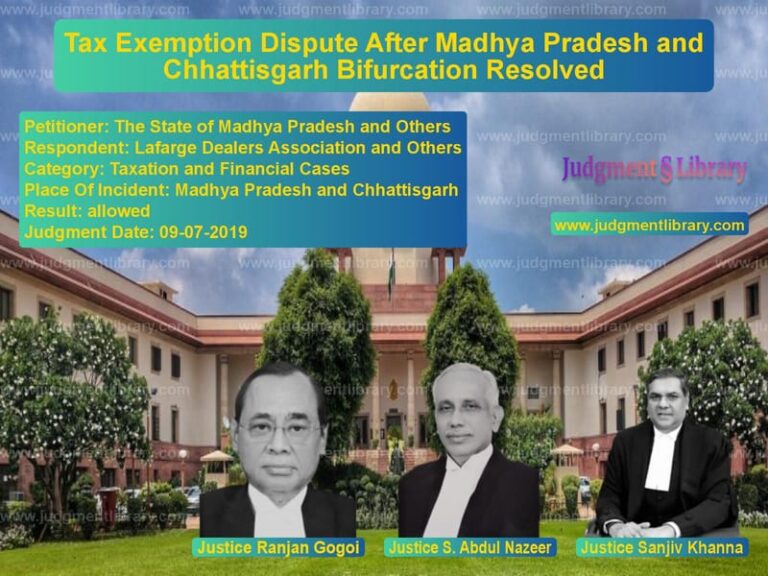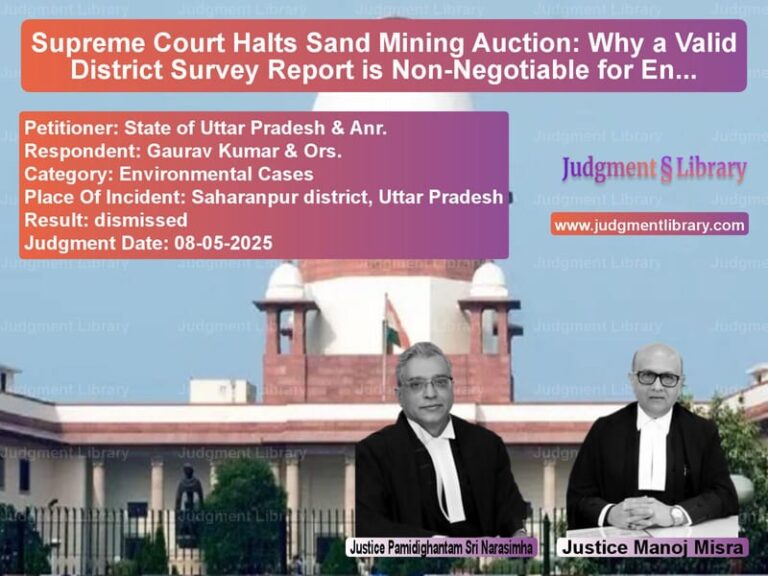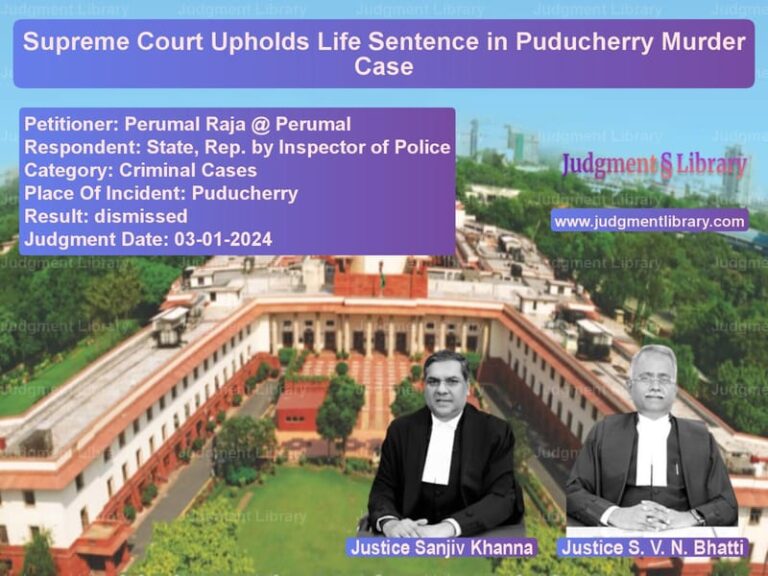Supreme Court Acquits Businessman in Sandalwood Oil Case: Kerala Forest Act Interpretation
The Supreme Court of India recently delivered a significant judgment in the case of Bharath Booshan Aggarwal vs. State of Kerala, overturning the Kerala High Court’s conviction of the appellant under Section 27 of the Kerala Forest Act, 1961. The Court ruled that the prosecution failed to establish that the accused had knowingly received or possessed illicitly removed forest produce.
Background of the Case
The case dates back to January 4, 1994, when officials from the Kerala Forest Department seized 37 cartons containing 460 kg of sandalwood oil at Karipur airport, Kerala. The shipment belonged to the appellant, a businessman engaged in the manufacture and trade of sandalwood oil. Further searches at his premises led to the recovery of an additional 73.6 kg of sandalwood oil.
The Kerala Forest Department filed a criminal complaint, alleging that the appellant’s possession of sandalwood oil violated the Kerala Forest Act, as it was deemed a forest produce and required a transit license for transportation. The prosecution maintained that the appellant had failed to account for the source of the raw materials used to manufacture the sandalwood oil.
Petitioner’s Arguments (Bharath Booshan Aggarwal)
The appellant contested the charges on the following grounds:
- Sandalwood oil, as a processed product, was distinct from raw sandalwood and, therefore, did not qualify as forest produce under the Kerala Forest Act.
- The appellant possessed a valid and subsisting license from the Central Excise authorities to manufacture sandalwood oil.
- The sandalwood oil was legally sourced and exported through proper channels, generating foreign exchange for the country.
- All necessary documentation, including purchase records, invoices, and registers, was maintained as per the Central Excise Rules, proving the legitimate procurement of raw materials.
- There was no evidence that the sandalwood oil was illicitly removed from a reserved forest.
Respondent’s Arguments (State of Kerala)
The prosecution argued that:
- Sandalwood oil was classified as a forest produce under Section 2(f) of the Kerala Forest Act, and its possession without proper documentation was illegal.
- The appellant failed to produce satisfactory records proving the legal acquisition of sandalwood used for manufacturing the oil.
- Under Section 69 of the Act, possession of forest produce without valid authorization created a presumption that it was illicitly obtained, shifting the burden of proof onto the accused.
- The absence of a transit pass for the seized sandalwood oil indicated that it was illegally sourced.
Supreme Court’s Analysis
The Supreme Court examined two key legal questions:
1. Does Sandalwood Oil Qualify as Forest Produce?
The Court acknowledged that the Kerala Forest Act includes “wood oil” as forest produce but emphasized that a distinction must be drawn between raw materials and processed products. The Court cited the decision in Standard Essential Oil Industries vs. Forest Range Officer, where it was held that while sandalwood oil is derived from a forest produce, its classification under the Act must be subject to contextual interpretation.
The judgment stated:
“The legislature does not intend to restrict the word ‘wood oil’ to only natural exudation but also includes processed products. However, this does not mean that all derivatives automatically become forest produce.”
2. Did the State Prove that the Sandalwood Oil was Illegally Procured?
The Court held that under Section 27(1)(d) of the Act, the prosecution must establish that the accused knowingly received or possessed illicitly removed forest produce. The Court found that the prosecution failed to present evidence proving that the appellant’s sandalwood oil originated from illegally sourced sandalwood.
The judgment further observed:
“The prosecution bears the burden of proving the foundational facts before the presumption under Section 69 can apply. The State failed to provide independent verification that the raw materials were obtained through illegal means.”
Judgment and Conclusion
The Supreme Court allowed the appeal, setting aside the conviction and sentence imposed by the High Court. The ruling reaffirmed the principle that the prosecution must prove every element of an offense beyond a reasonable doubt, and presumptions cannot substitute for concrete evidence.
The Court directed the immediate release of the appellant and quashed all charges against him.
This judgment serves as a critical precedent in cases involving the interpretation of forest laws and the burden of proof in criminal cases related to forest produce.
Judges: The judgment was delivered by Indira Banerjee and S. Ravindra Bhat.
Petition Result: Allowed
Petitioner Name: Bharath Booshan Aggarwal.Respondent Name: State of Kerala.Judgment By: Justice Indira Banerjee, Justice S. Ravindra Bhat.Place Of Incident: Kerala.Judgment Date: 06-10-2021.
Don’t miss out on the full details! Download the complete judgment in PDF format below and gain valuable insights instantly!
Download Judgment: bharath-booshan-agga-vs-state-of-kerala-supreme-court-of-india-judgment-dated-06-10-2021.pdf
Directly Download Judgment: Directly download this Judgment
See all petitions in Fraud and Forgery
See all petitions in Extortion and Blackmail
See all petitions in Judgment by Indira Banerjee
See all petitions in Judgment by S Ravindra Bhat
See all petitions in allowed
See all petitions in Quashed
See all petitions in supreme court of India judgments October 2021
See all petitions in 2021 judgments
See all posts in Criminal Cases Category
See all allowed petitions in Criminal Cases Category
See all Dismissed petitions in Criminal Cases Category
See all partially allowed petitions in Criminal Cases Category

